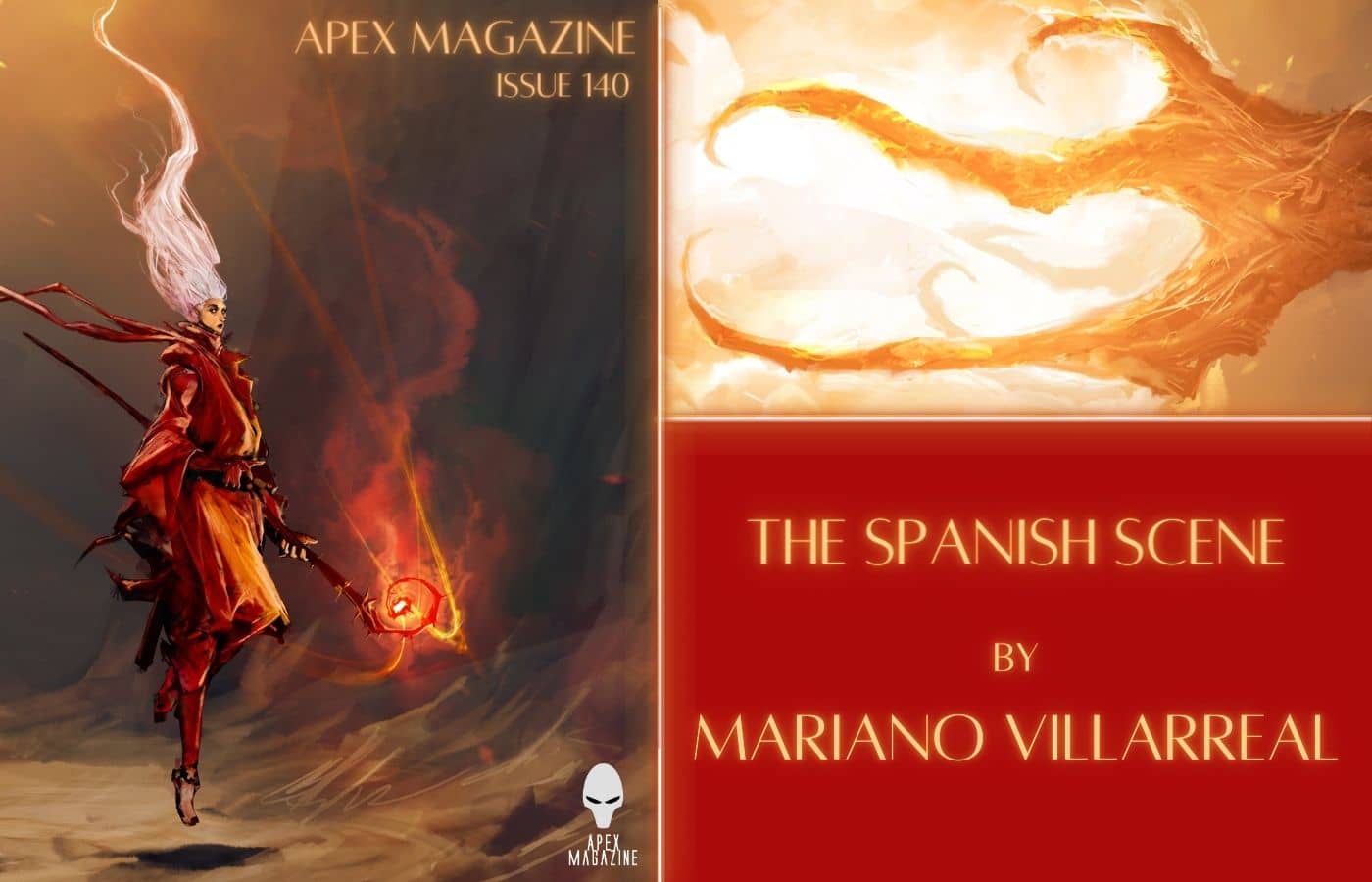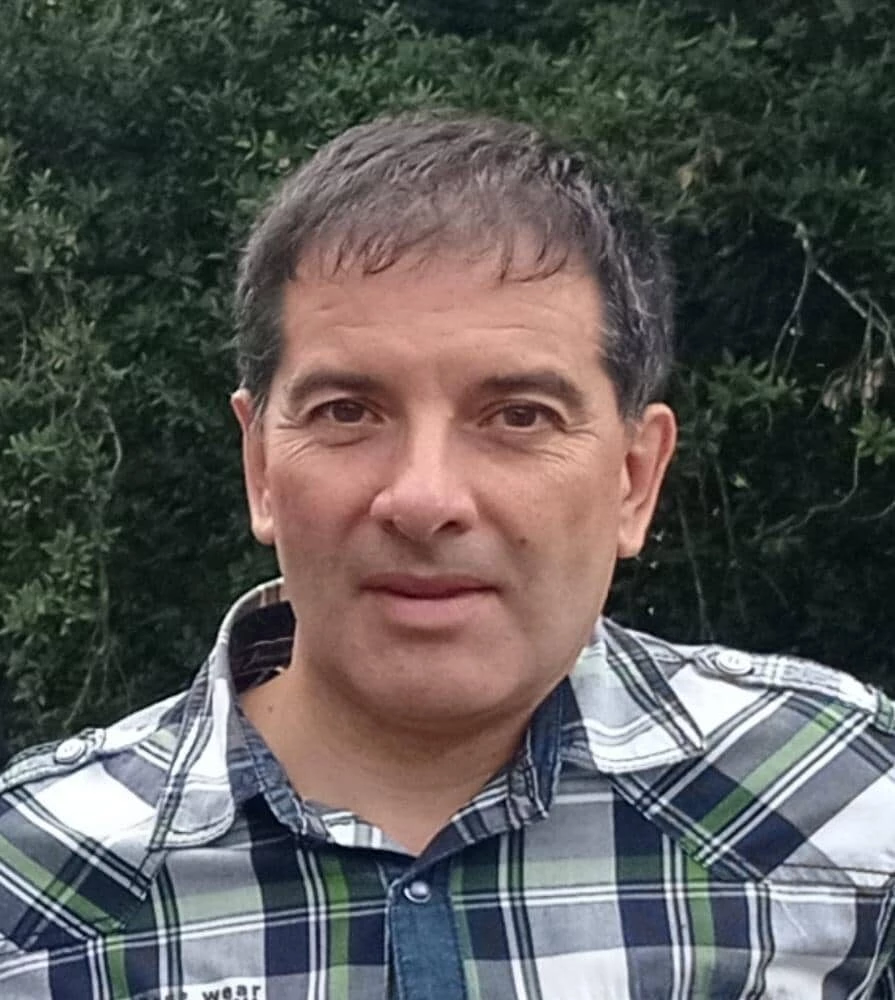
Spain is a medium-sized country in terms of publishing speculative literature, with around 1,500 science fiction, fantasy, and horror titles per year, although the average print run rarely exceeds 3,000 copies. Two hundred publishing houses regularly publish fiction and nonfiction books: on the one hand, two or three large publishing groups concentrate on the most commercial and internationally relevant titles; on the other, a big number of small and specialized micro-publishers take care of the rest.
This huge activity allows the main books from around the world to reach our country in a short time, including the winners of the most important awards, although, unfortunately, the same does not happen the other way around, and the best works by Spanish authors are rarely published abroad, except in Latin America and some European countries. I assure you that Spanish speculative literature has many works of great value that deserve to be better known in the rest of the world.
Even solely focusing on 2022, one of the most outstanding novels of the past year was Historia triste de un hombre justo (The Sad Story of a Fair Man) by Ángel González Olmedo, an ambitious novel that takes us to a decadent empire inspired by 17th century Spain. The outlaw bard Dragos Corneli returns to the gigantic city-state of Ísbar to unravel a mystery. To achieve this, he only has his ingenuity, a few friends, and his inseparable wrist harp with which he is able to harmonize (do magic). A complex work with an extraordinary setting, delicious archaic language, and some steampunk elements, it will soon have a sequel.
In science fiction, Horizonte de estrellas (Star Horizon) by Víctor Conde and Guillem Sánchez is a fascinating first contact novel that evokes the same emotion and sense of wonder as Rendezvous with Rama by Arthur C. Clarke. A quantum engineer embarks on a colonization mission to a distant star along with several members of an allied alien race. When the ship veers off course, she awakens from hibernation to discover a massive vehicle of unknown origin. Hard science fiction winner of the Minotauro Award, one of the most important awards in Spain, endowed with €6,000 by the Minotauro publishing house—although years ago this endowment was three times bigger.
Simbiosis (Symbiosis) by Bruno Puelles—a finalist for the aforementioned award—is a surprising and very attractive choral novel set in an alternative present day. An alien race joins with humanity in a symbiotic elationship: knowledge and high technology by the aliens in exchange for sharing human bodies. The author uses this popular science fiction setup to pose an ethical dilemma: to what extent would we be willing to give up our independence as a species to achieve world peace, the eradication of diseases, and prosperity for a majority of the population? All this is seasoned with a detective plot.
Another interesting novel is El peso del humo (The Weight of Smoke) by Tannia R. Tamayo, which describes a remote planet where humans change sex spontaneously in the middle of their lives and a researcher tries to find out how this miracle occurs. Yes, a plot that explores a story similar to The Left Hand of Darkness by Ursula K. Le Guin.
La danza de los árboles (The Dance of the Trees) by Pau Ferrón Gallegos is a highly imaginative short novel in which the most daring ideas proliferate, such as a world in which human beings live and die among the branches of giant trees that float in an ocean of clouds. La esencia del mal. Operación Félix (The Essence of Evil. Felix Operation) by José Antonio Suárez is an exciting alternative history that develops what would have happened if Nazi Germany had invaded Gibraltar at the end of the Spanish Civil War.
Spain’s horror genre has experienced a boom in recent years. Among the most interesting books published last year, I can heartily recommend Inanición (Starvation) by the Spanish-Polish writer Daria Pietrzak, a rural horror novel set in a small and remote Spanish village. This supernatural thriller stars a couple in crisis who try to rebuild their relationship in a family home that had been closed off for many years and holds dark secrets. Alone at the Top by Carlos Sisí is a tense thriller in which a man wakes up in the room of a house with a strange amnesia and surrounded by people trying to carry out a dangerous or perhaps even criminal mission.
Paramorfo (Paramorph) by Víctor Conde is a medical thriller that ventures into body horror and David Cronenberg's idea of the new flesh. A new technology allows damaged human organs to be replaced by specifically designed insectoid beings that have been bioengineered to supplement the function of that organ. A fascinating novel from a literary point of view, which creates a complex ethical debate Finally, Aquel dulce otoño del apocalipsis (That Sweet Autumn of the Apocalypse) by Juan de Dios Garduño is a very funny zombie novel that follows the absurd journey of a young man and his curmudgeonly father who wishes to visit the Real Madrid football stadium before dying. To achieve this, they will have to cross a country devastated by a zombie plague.
In young adult fantasy I can recommend Fantasmas de verde jade (Jade Green Ghosts) by Víctor Sellés, which take us to a kind of Victorian London impregnated with gothic elements. An orphan boy accepts the offer of a mysterious lady to be part of a secret society of young people with extraordinary abilities who fight supernatural forces that invade the city. El libro de todos los libros (The Book of All Books) by Ricardo Montesinos is an eastern fantasy set in the 13th century, where the guardian of the Great Library of Quinsai, a city under siege and about to fall into the hands of invaders, reviews a book that describes the wonderful adventures of Marco Polo.
A quarter of the titles published in Spain each year are reprints, which is a great way for new readers to get to know the best titles from years ago. Cenital (Peak) by Emilio Bueso narrates the day-to-day life of an ecovillage built by an anti-establishment collective gathered around a prophetic leader—a solitary character who anticipated the world collapse because of oil depletion. It is a work of anticipation that also works as a horror, catastrophic, and dystopian story. El mundo de Yarek (The World of Yarek) by Elia Barceló is an emotional short novel in which a xenoanthropologist is found guilty of genocide and sentenced to twenty years of exile on an uninhabited world with only the company of his memories and nightmares. It won the 1993 Universitat Politècnica de Catalunya's UPC Award, a prize in which authors such as Gregory Benford, Alan Dean Foster, and Michael Bishop have competed.
Crónicas del Multiverso (Chronicles of the Multiverse) by Víctor Conde, winner of the 2010 Minotauro Award, is an ambitious space opera full of boundless imagination and exciting situations. The novel develops a great scenario called The Variety, a dense cluster of stars surrounded by an immense impassable void, an island of suns inhabited by fifteen intelligent species in continuous belligerence that must face the collapse of the universe. Panteón (Mausoleum) by Carlos Sisí, winner of the 2013 Minotauro Award, is a mixture of science fiction and cosmic horror that narrates the adventures of two scrap dealers who find, among the remains of a battle on a remote planet in the galaxy, a strange artifact of an ancient, unknown civilization. El círculo de Jericó (The Circle of Jericho) by César Mallorquí is a collection of stories considered among the best ever written in Spanish science fiction. Many of the exceptional stories have won numerous awards. In horror, David Jasso's El juego de las tinieblas (The Game of Darkness) includes a good part of the best stories from an author considered a master of psychological and intelligent terror.
As you can see, 2022 was a fantastic year for Spanish speculative fiction. I would be very happy if any of these works were translated and published in the USA so that readers from all over the world could consider new imaginative views.
I cannot close this essay without mentioning magazines and awards. Currently there are about forty speculative fiction magazines in Spain: we have the elegant Windumanoth; Delirio, Barsoom, and Ulthar dedicated to the pulp; online is the always-interesting SuperSonic Magazine edited by Cristina Jurado; also Hélice and Brumal which are dedicated to the academic field; in Catalan, there are Catarsi and Freakcions. These short fiction venues are a wonderful way for readers to read a wide variety of writers—both established and those who are just beginning their writing journey.
As for the Spanish awards, there are dozens, generally for unpublished works (novels, novellas, short stories) and many sponsored by public administrations such as town halls or universities. Some allow originals in English, Catalan, or Basque, and together they add up to more than €50,000 in prize money, which is not bad at all.
Although the titles I've mentioned above have not yet been translated, there are titles beyond 2022 available for English-speaking readers who wish to read Spanish speculative fiction. The bestseller The Map of Time by Félix J. Palma is a brilliant Victorian fantasy that pays homage to Wells' The Time Machine, and is the first novel of the Victorian Trilogy also made up of The Map of Heaven and The Map of Chaos. Rosa Montero's Tears in Rain is a future noir novel starring replicant detective Bruna Husky. the sequel Weight of the Heart is also available in English. Marian Womack has published three works of weird fiction in the US: The Swimmers is a claustrophobic cli-fi dystopia set in the hot landscape of Andalusia; The Golden Key, reminiscent of Jeff VanderMeer's Annihilation, is a dark supernatural fantasy set in London in 1901; and her collection Lost Objects includes the BSFA Award shortlisted story "Kingfisher."
You can find translated works written from a feminist and elegant perspective by Elia Barceló, exciting techno-thrillers by José Carlos Somoza, or scifi, fantasy, and horror stories by Rodolfo Martínez, Manuel de Pedrolo, Joan Perucho, Lola Robles, José Antonio Cotrina, Albert Sánchez Piñol, Santiago Eximeno, Manel Loureiro, Carlos Sisí … Finally, I would recommend reading the classic The Anacronópete / The Time Ship by Enrique Gaspar, which describes the voyages to several key moments in history thanks to a time machine, published eight years before H. G. Wells’ The Time Machine (yes, that's right!).
I began this piece stating that Spain is a medium-sized country in terms of the publication of speculative literature, but it is a world power in the organization of conventions. Of course, we have our national convention (HispaCon), which has been held for more than half a century and where the Ignotus (Spanish Hugo) awards are given, but there are also many other events—for example, in 2016 the EuroCon or European Convention was held in Spain.
Of all of them, the Celsius stands out: a free event that brings together thousands of fans not only from Spain but from many other countries and in which every year dozens of writers, editors, illustrators, screenwriters, people related to cinema, video games, comics, translation, etcetera are invited to participate. There it is possible to chat on the terrace of a bar with your favourite author and taste a wonderful meal in an atmosphere of incomparable camaraderie. Just ask Joe Abercrombie, Lavie Tidhar, Kameron Hurley, or George R.R. Martin, all of whom have attended in the past. As a reward for so many efforts over 12 years, Celsius 232 Festival is a finalist for the World Fantasy Award 2023 in the category Special Award - Non Professional, focused on the person of Cristina Macía. Good luck!!!
Of course, you are also invited and, if you ever come, you will surely come back again.









